The 8 Most Common Ways D&D Characters Die
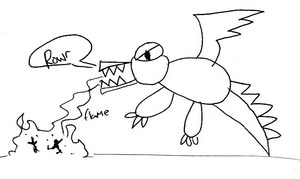 |
?With the recent debate on healthcare in this country, it’s important to note all of the people without healthcare in this country — most notably Dungeons & Dragons characters. Oh sure, they have healing potions and spells, but any table-top role-playing gamer knows they have a mortality rate that exceeds that of a hamster left alone with a hyper four-year old. Dungeons & Dragons characters die constantly at the hands of PCs and Dungeon Masters alike, by monsters and stupidity, through acts of god and acts of dice; here are 8 of the most common ways their character sheets head to Valhalla… or the trash can.
Daily List suggested by tvtastegood.
8) Getting Eaten
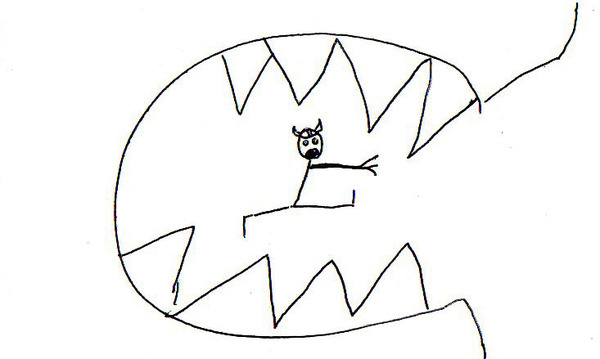 |
?Fortunately, in real life, we humans have developed easy ways of not
being eaten by larger creatures. In D&D there is no such luxury. In
fact, there’s a whole range of horrible beasts that can swallow your
character whole, just waiting for a Dungeon Master and a purchase of a
Monster Manual for your character to end up a possible snack. It runs
the gamut of horrible, from the standard giant humanoid, which will pop
you their mouths like a Nutter Butter cookie, to there’s the horrible
unknowables in the dark to snatch your character away into the shadows
where a player’s bones start crunching like crackers.
7) Death by Edition
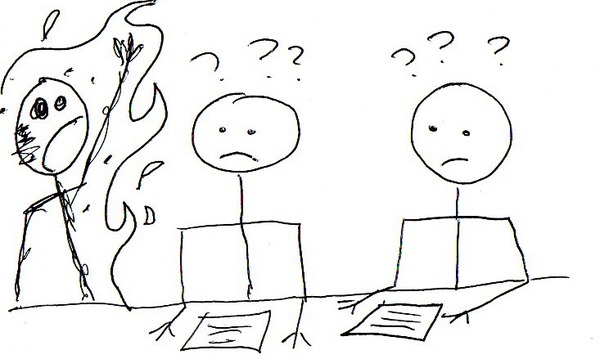 |
?Dungeons & Dragons has changed its rules quite a bit, especially in the last ten years. Part of the reason is the takeover of TSR by Wizards of the Coast, which lead a complete redesign of the game. The other reason is that if you change the edition every few years, you get to sell more books. In any case, you are going to always find someone who doesn’t understand that multiclassing is gone in 4th edition and your beloved Cleric/Ninja has effectively been wished out of existence. Meanwhile, there will be an older gentleman in the corner, keeping his fighter out of the melee and allowing everyone else to get slaughtered because he can’t figure out where the THAC0 is on his character sheet.
6) Another PC Isn’t Taking It Seriously
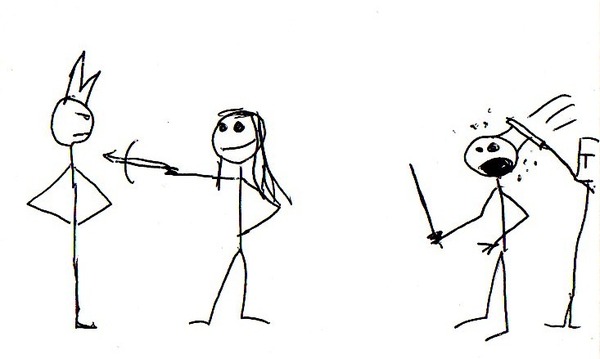 |
?Some people join your party and act dumb on purpose. They are as invested in the game as the average horse is invested in Senate roll-call procedures.
For example:
DM: “You stand before the King. Flanking you on both sides are about six armed and armored guards dressed in royal garb. The King himself is armored, and seems to have a large glowing broadsword -“
NON-SERIOUS PLAYER: “I shoot him in the face with my crossbow!”
SERIOUS PLAYER: “You want to shoot the King in the face with a crossbow?”
NSP: “Yeah! I say ‘take that, Kingy!’ and shove it right in his face before I pull the trigger, gangsta style!”
SP: “Maria, first of all, the King summoned us here to thank us for what we did in the last quest that you weren’t a part of and second, he and his guards can kick our ass.”
NSP: “I say ‘Let’s see if your Guards can get you out of this one, pussy!’ and pull the trigger.”
DM: “Roll for initiative.”
SP: “Tim, you can’t possibly let Jerrod-“
DM: “Roll for initiative.”
And everyone dies.
5) Friendly Fire(ball)
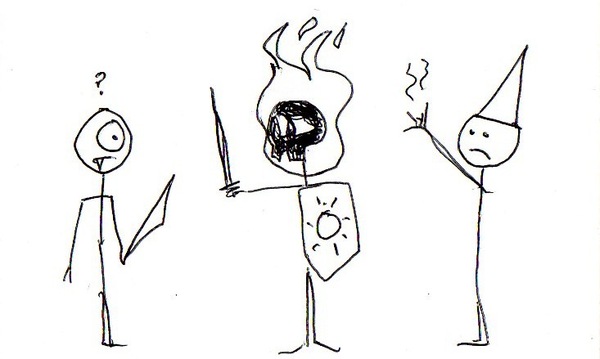 |
?Mages, magic-users, wizards, whatever you want to call them, they have powerful attacks with long ranges and wide area effects. What they don’t have, however, is an innate grasp of area, volume, or consequences. Casting a fireball or another large spell at an oncoming horde or orcs is one thing, but casting it into a melee where the PCs are fighting too? The fireball doesn’t care who’s on who’s side, and does damage to both. Many a D&D character has died by a wizard on their team either casting before thinking… or not thinking at all.
4) A Dragon
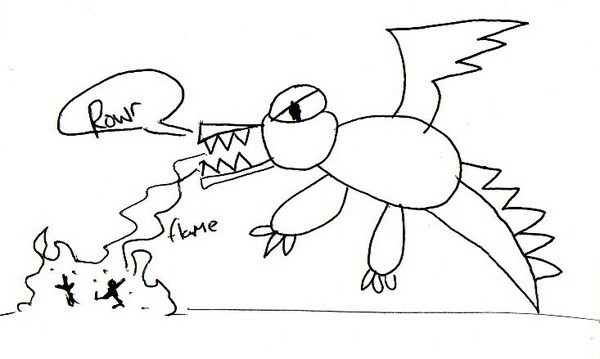 |
?Since “Dragons” is part of the title of the game, DMs often like to put in a dragon as the final beast for a campaign. Wizards of the Coast obliges this need by providing a variety of dragons for a variety of ways to get killed. They have a massive amount of hit points. They easily shrug off any kind of sleep or paralysis attempts through magic or otherwise, and laugh heartily about it since most of them are of an evil alignment. They can hit you with a breath weapon, which usually does not hit you with the stench their last meal, but rather, acid, fire, lightning, or sleep gas, so they can bury you up to your neck in sand and then slap your head around until they decide to bite into it like a Tootsie Pop. Unfortunately, dragons often have awesome treasure, meaning PCs usually try to fight the dragon anyways, even if they have no chance. Overall, when meeting a dragon, players can expect the experience to be not unlike seeing how long you can hold your character sheet above a paper shredder before you drop it.
3) You’ve Pissed Off the Cleric
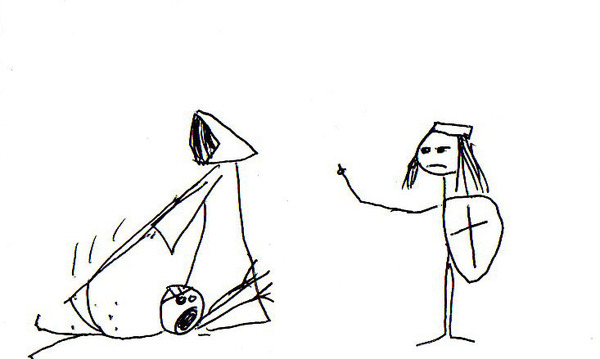 |
?Clerics are a tricky bunch. They’re useless until your character is hurt, and then they’re incredibly important. So if you want to get healed, your character very much needs to stay on the cleric’s good side — and you have to stay on the cleric’s player’s good side, too. If your fighter takes the +2 mace the cleric had his eye on, or maybe you steal to many of the cleric’s player’s Cheetos, but piss either of them off and your character will certainly enjoy a slow death watching the cleric working on your epitaph instead of healing you.
2) The Goddamn Dice
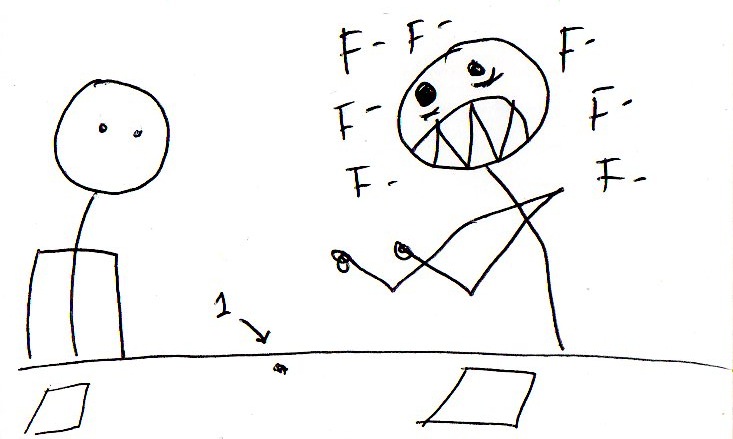 |
?The D20 is cruel mistress. Rolling two 1s in a row usually equals dead, even against monsters you should normally be able to defeat. Then, like a baseball player without his steroids, you swing your axe wildly and without any accuracy, meanwhile some sort of middling hellish beastie with necrotic damage is slicing you ribbons. This usually happens when there is a battle where nobody can save you, where they themselves could use your help. Players start swearing more than sailors lacking whores and whisky. People cursing you, cursing the dice, saying the dice are cursed, and saying you are bad at D&D. Eventually everyone is dead with no hope of resurrection, and you all eat pizza angrily.
1) You Stop Playing
 |
?This is perhaps the most common and horrible way a D&D character dies. You get older, you get more responsibilities, and you find you can’t do the all-night sessions anymore – you’ve got a job to get to in the morning, you find yourself too tired. You then find yourself unable to do even a once-a-week session. You have kids, a mortgage payment and everyone else you know hasn’t the time either. Eventually you sell your books, and your character sheet is accidentally left in a notebook that gets thrown away when you are cleaning out your attic to make room for a collection of antique metal roosters. It is by far the most horrible way to die.

